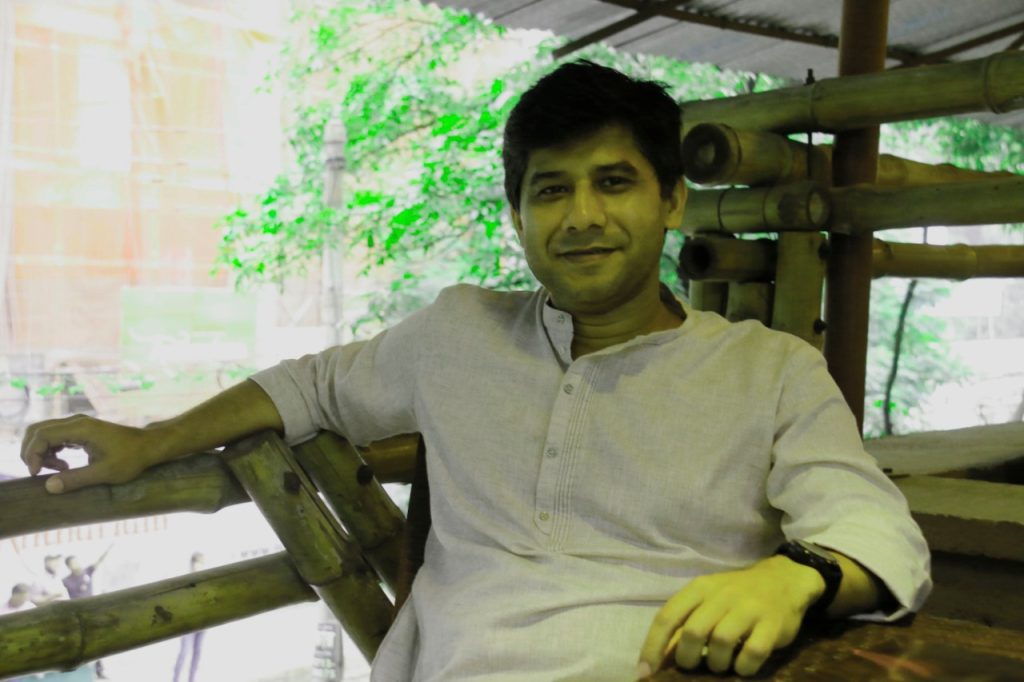Mohammed Nadiruzzaman
Biography
Dr. Md. Nadiruzzaman is an Assistant Professor in the Department of Health, Ethics and Society at Maastricht University (UM), Netherlands. He is also the Head of Research in Sustainable UM 2030. Previously he worked as a Senior Research Fellow in Climate, Climate Change and Society (CLICCS) at the Centre of Research Excellence at Hamburg University (UHH), Germany. He also affiliates at the International Centre for Climate Change and Development (ICCCAD) (Bangladesh), Humanitarian Advisory Group (Australia) and Flowminders (Sweden). Before moving to Germany back in 2019, Nadir held several teaching and research positions at the Independent University, Bangladesh (IUB), Exeter University (UK), United Nations University – Environment and Human Security (UNU-EHS) and several other organisations.
By training Nadir is a human geographer with an MA and PhD from Durham University, where he problematised traditional knowledge framing of cyclone, and demonstrated how marginality in everyday life constrains peoples’ resilience to withstand extreme events.
The Christopher Moyes Memorial Foundation (CMMF) supported Nadir’s PhD at the Institute of Hazard, Risk and Resilience (IHHR) at Durham University, UK.

PhD Research
After the Cyclone Sidr disaster itself caused an immense amount of damage in Bangladesh, Nadir discovered that people faced numerous risks during its aftermath. Those struggling economically in Bangladesh, such as fishing communities, move to areas that are more vulnerable to the impacts of cyclones. But fishermen in Bangladesh face not only the destruction caused by natural hazards, but also must struggle against economic and social inequality.
Nadir’s research helped give fishermen who were socially marginalised a political voice where before they had no way of communicating their struggles. The research gained local and national attention from the media and government which changed the understanding of local civil society about the fishing community. In response to Nadir’s work, local government began to enforce existing laws that protected fishermen.
Not only were people struggling to maintain their livelihoods after Cyclone Sidr, but troubles with obtaining sufficient housing after the disaster was also experienced by many people living in south Bangladesh. Based on eight months of ethnographic field work in Gabtola, Nadir found that housing provided by government was not sufficiently resilient to withstand the effects of cyclone hazards, nor cost-effective or conducive to the livelihoods or public health of communities. Findings from this research published in the scientific journal Natural Hazards can assist public authorities and NGOs in revising and improving upon their post-disaster housing programmes to better deal with future disasters.
Research since PhD
Since obtaining his PhD, Nadir has been involved with several large research projects across the continent and expanded his works on migration and big data, energy and poverty, climate finance, ecosystem services and disaster, urban climate change, livelihood security, etc. He looked through the lenses of political ecology and strived to understand the politics of contesting knowledge framing. He worked with several eminent IPCC lead coordinating authors, including Prof. Neil Adger (IPCC AR5 Coordinating Lead Author, Chapter 13: Human Security) and Prof. Saleemul Huq (IPCC AR5 Coordinating Lead Author, Chapter 14: Adaptation Needs and Options). Nadir has secured several international research bids over the last decade.
Dr. Nadir has expanded his work in development sector and tried to bridge the gap between theory and development practices through his work. He worked as a Director – Learning, Research and Knowledge Management in a USAID funded food for peace (FFP) programme. He contributed to the National Agricultural Policy 2018 of Bangladesh by putting in a climate change lens into it and supported the Ministry of Finance of the Government of Bangladesh in climate sensitive budget coding for twenty ministries. He provided consultancy services to World Vision, DFID, UNDP, CRS, Save the Children, Hunger for Humanity, Humanitarian Advisory Group, Oxford Policy Management and several other organisations. He has also extensively published in several apex journals such as Nature Climate Change, Global Environmental Change, Climate Change and Geoforum.
Nadir’s academic works could be viewed at https://healthfoodinnovationmanagement.academia.edu/MdNadiruzzaman.
